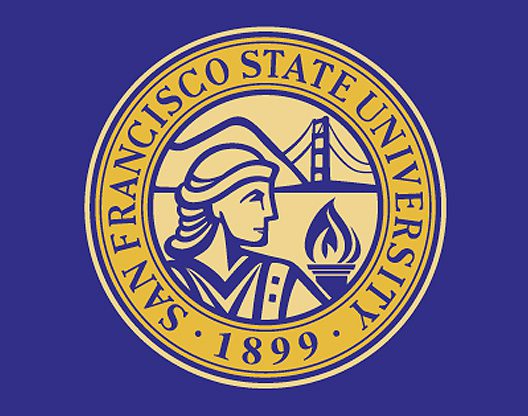Top Schools Tackle Sexual Harassment, NFL Protests, and More

Should business schools teach ethics and social responsibility? In the past, top MBA programs stuck to a fairly typical curriculum: finance, marketing, accounting, economics. And while those topics still comprise the core of most MBA programs, they’re now only a part of the whole.
Beyond allowing MBA students to focus their studies in areas like entrepreneurship or technology, MBA programs are also taking on some of the most prominent ethical topics of the day, asking students to weigh in on current headlines and happenings. It’s the MBA ethics debate.
According to a United Nations group survey of business school students from around the world, students believe that ethics are a business’s most important responsibility. According to the report, “the exposure to, and teaching of, business ethics does not merely assist business leaders to resolve moral dilemmas. More importantly, it matures their proficiency in moral judgment and their ability to incorporate social issues in the decision-making process and assists them in implementing this in an all-inclusive manner.”
For example, last year a group of business executives—including the CEO of PepsiCo and head of General Motors—got together to dissolve two business councils that consulted with President Trump after insensitive remarks about the white supremacist violence that took place in Charlottesville, VA. And other executives such as the CEO of Patagonia, Yvon Choinard, have been vocal about political and ethical issues—even using their companies to take positions on social responsibility that would typically be considered outside the scope of business.
So, it’s no wonder many business schools have been making business ethics a more important part of their curriculum. The question is, “How should business ethics be added to the MBA curriculum, and how is it being added currently?” It depends on the school.
At Georgetown University’s McDonough School of Business, Professor Edward Soule teaches courses on business ethics, corporate social responsibility, and leadership. During these classes, he told the New York Times that he has assigned coursework covering a range of trending topics including sexual harassment at Uber, social justice protests by N.F.L. players, and how companies like Amazon have responded when attacked by President Trump.
“Something has changed,” Soule said. “I would be kidding you if I told you there wasn’t a different vibe in the classroom. Ethics and values have taken on more significance. It has to do with all of the things going on in this administration, often things that challenge our understanding of ethics and leadership.”

Students discuss the recent NFL protests in Prof. Ed Soule’s class at Georgetown’s McDonough School of Business. Photo via Justin T. Gellerson for The New York Times.
Georgetown McDonough is also home to the Institute for the Study of Markets and Ethics (GISME), a center that examines the ethical issues inherent in the functioning of a market society. Students, faculty, and researchers who participate in the center explore ethical questions as they relate to business and bring ethical considerations to bear on policy decisions regarding the regulation of markets. These are especially salient issues for Georgetown McDonough given its Washington D.C. location.
“At the McDonough School of Business, we have developed a method of teaching business ethics that includes normative experiential learning, communicates in terms readily understood by business students, and involves actual ethical decision-making on the part of the students,” Michael Douma, assistant research professor and director of GISME, said in a news release. “We have found that our approach results in students being more invested in the course and more committed to resolving ethical issues that confront them in a business environment.”
Another example can be found at Carnegie Mellon’s Tepper School of Business. According to John Hooker, a professor of operations research and business ethics and social responsibility, ethics has been a part of the Tepper School curriculum since the 1990s. “Our program was apparently the first to introduce the topic (1966), as part of a course on business law,” Hooker told us. “The ethics presence has gradually increased over the years, but we ethics faculty often have to fight for it. My view is that a required ethics course should be part of the picture.”
And Leanne Meyer, co-director of the Accelerate Leadership Center at the school, told the New York Times, “There’s a turning point in what’s expected from business leaders. Up until now, business leaders were largely responsible for delivering products. Now, shareholders are looking to corporate leaders to make statements on what would traditionally have been social justice or moral issues.”
As for ethics and MBA students, Tepper’s core offering in Ethics and Leadership is one of the only second-year courses it requires its students to take. The course teaches students how to foster their ability to reason and how to handle the ethical implications of managing organizations and people.
“The basic lesson for MBA students is that business ethics is not optional,” explained Hooker. “It is the basis for the social infrastructure that makes business possible, much as engineering is the basis for physical infrastructure. It requires careful analysis and training, no less than engineering or finance. This is why we need a stand-alone ethics course. Business ethics training teaches us to do ethics with our brains rather than rely on gut feelings. Otherwise, we have no way to reach consensus on the ground rules.”
In the end, there are many options for MBA students interested in ethics, though ultimately it up to the students themselves to raise topics that are pressing to them. “Ethics courses often focus on the hot topics. This stimulates discussion and raises course ratings, but it generates more heat than light,” said Hooker. “I focus on issues that students themselves raise. I also emphasize cross-cultural ethics, because business is global, and norms vary enormously around in the world. U.S. students typically have little awareness of this.”
Whether through case studies, guest speakers, simulations, competitions, or another initiative, the leading MBA programs dive into business ethics and corporate responsibility using a range of approaches. To learn more about Professor Hooker’s approach to ethics, you can check out his blog: Ethical Decisions.
This article has been edited and republished from our sister site, Clear Admit
Northeastern Professors Talk Dangers of Aetna-CVS Mega Merger

A recent multi-billion dollar mega-merger between health insurance company Aetna and popular medical dispensary chain CVS Heath has certainly raised some eyebrows, of which include several healthcare experts at Northeastern University and the D’Amore-McKim School of Business.
Cass Business School Releases 5 New Statements for Corporate Governance

Endorsed by more than 250 leading international academies, the Modern Corporation Project at Cass Business School has released five statements, which reveal a new vision for corporate governance. High-level experts in a variety of legal systems helped to devise the statements, which cover company law, economics, management and politics. The goal of the declarations is to foster debate about corporate governance and to provide cross-jurisdictional and cross-disciplinary consensus. Continue reading…
Notre Dame Ethics Week Coming to Mendoza Next Week

The Mendoza College of Business and the Notre Dame Deloitte Center for Ethical Leadership are set to bring the Notre Dame business community one of it’s favorite events of the year: Notre Dame Ethics Week. The event, which is free and open to the public, takes place every February, and brings in experts from a diverse array of industries to explore current ethics issues. Continue reading…
SFSU College of Business Announces E&C Certificate

San Francisco State University College of Business recently announced that they will be offering an Ethics & Compliance Certificate program, according to a press release from the school. The certificate program launches in the Fall 2015 semester. Continue reading…
Think Training Course at Kellogg Aims to Improve Corporate Decision Making

This article was originally sourced from the article “When Two Rights Make a Wrong,” which appeared on Kellogg’s News & Events page.
Adam Waytz, an assistant professor of management and organizations at the Kellogg School of Management, recently partnered with online knowledge forum Big Think to sharpen the ethical behavior of business leaders.
The seven-module course titled Ethics in Action includes a series of scenarios, videos and quizzes on topics like “Loyalty vs. Fairness,” “Professional Duty vs. Personal Ethics,” “Speaking Truth to Power” and “Profit Maximization vs. Social Responsibility.”
“Given that many businesses at the turn of the 21st century have been viewed as undergoing ethical failures, the topic is timely,” Waytz said. “And given the nature of how quickly information moves, details about one’s reputation are now more public — and easier to access — than ever before.”
For businesses increasingly reliant on global collaboration, the establishment of trust is vitally important.
“This trust can only be ensured through displays of ethical behavior,” Waytz says. But how does that trust bridge cultural differences? Ethics in Action devotes a module to that topic as well. Continue reading…
